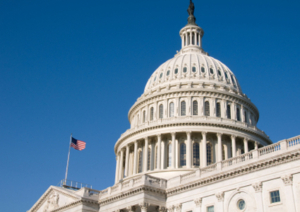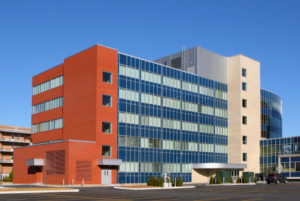SNAP Asks PA Senators for COVID-19 Help
Pennsylvania’s safety-net hospitals need help with the challenges posed by the COVID-19 public health emergency, SNAP wrote yesterday in a letter to Pennsylvania senators Pat Toomey and Bob Casey.
 In its letter, SNAP asked the senators to advocate:
In its letter, SNAP asked the senators to advocate:
- An additional $100 billion for hospitals.
- Forgiveness for money provided to hospitals through the federal CARES Act’s Accelerated and Advance Payment Program.
- An increase in the federal Medicaid matching rate (FMAP).
- An increase in states’ Medicaid disproportionate share (Medicaid DSH) allotments and a delay in the scheduled implementation of Medicaid DSH allotment cuts to the states.
- Action to prevent implementation of the Medicaid fiscal accountability regulation.
- A moratorium on changes in hospital eligibility for the 340B prescription drug discount program, Medicare indirect medical education program, Medicare disproportionate share (Medicare DSH) program, and other programs.
See SNAP’s letter here.
 The regulation, proposed by the Centers for Medicare & Medicaid Services in November would impose new limits on the ability of states to finance their share of their Medicaid spending, potentially jeopardizing provider payments and the ability of high-volume Medicaid providers to operate without suffering great losses.
The regulation, proposed by the Centers for Medicare & Medicaid Services in November would impose new limits on the ability of states to finance their share of their Medicaid spending, potentially jeopardizing provider payments and the ability of high-volume Medicaid providers to operate without suffering great losses. Authorization for delaying the cut in allotments to the states, which would have resulted in reduced Medicaid DSH payments for many hospitals – including private safety-net hospitals – would expire on May 22. Congress is expected to address Medicaid DSH, along with surprise medical bills, the price of prescription drugs, and other health care matters, before that time.
Authorization for delaying the cut in allotments to the states, which would have resulted in reduced Medicaid DSH payments for many hospitals – including private safety-net hospitals – would expire on May 22. Congress is expected to address Medicaid DSH, along with surprise medical bills, the price of prescription drugs, and other health care matters, before that time. The Medicaid and CHIP Payment and Access Commission kicked off its December meeting with highlights from its forthcoming issue of MACStats: Medicaid and CHIP Data Book, due out December 18, 2019. MACStats brings together statistics on Medicaid and State Children’s Health Insurance Program (CHIP) enrollment and spending, federal matching rates, eligibility levels, and access to care measures, which come from multiple sources.
The Medicaid and CHIP Payment and Access Commission kicked off its December meeting with highlights from its forthcoming issue of MACStats: Medicaid and CHIP Data Book, due out December 18, 2019. MACStats brings together statistics on Medicaid and State Children’s Health Insurance Program (CHIP) enrollment and spending, federal matching rates, eligibility levels, and access to care measures, which come from multiple sources. The Prescription Drug Pricing Reduction Act includes a provision that would eliminate two years of Affordable Care Act-mandated cuts in the allocation of federal money to the states for Medicaid disproportionate share hospital payments (Medicaid DSH). Those cuts have been delayed several times by Congress but were scheduled to begin in October of 2019 and run through federal FY 2025, only to be delayed again twice by continuing resolutions adopted by Congress to fund the federal government in the absence of enacted appropriations bills.
The Prescription Drug Pricing Reduction Act includes a provision that would eliminate two years of Affordable Care Act-mandated cuts in the allocation of federal money to the states for Medicaid disproportionate share hospital payments (Medicaid DSH). Those cuts have been delayed several times by Congress but were scheduled to begin in October of 2019 and run through federal FY 2025, only to be delayed again twice by continuing resolutions adopted by Congress to fund the federal government in the absence of enacted appropriations bills. The Medicaid DSH cut was included in the 2010 health care reform law in anticipation of a great reduction in the number of uninsured people leaving hospitals providing much less uncompensated care and therefore not in need of as much DSH money. The law’s reach has not proven to be as great as anticipated, however, and two developments since the law’s passage have put a damper on the expected rise in the number of insured Americans: a court decision that made it optional for states to expand their Medicaid program and the repeal of the requirement that everyone purchase health insurance.
The Medicaid DSH cut was included in the 2010 health care reform law in anticipation of a great reduction in the number of uninsured people leaving hospitals providing much less uncompensated care and therefore not in need of as much DSH money. The law’s reach has not proven to be as great as anticipated, however, and two developments since the law’s passage have put a damper on the expected rise in the number of insured Americans: a court decision that made it optional for states to expand their Medicaid program and the repeal of the requirement that everyone purchase health insurance. Cuts in Medicaid disproportionate share hospital (Medicaid DSH) allotments to states were mandated by the Affordable Care Act based on the expectation that the law would greatly reduced the number of uninsured Americans. While this has been the case, the decline in the number of uninsured has not been as great as expected. For this reason, Congress has on several occasions delayed the required Medicaid DSH cut.
Cuts in Medicaid disproportionate share hospital (Medicaid DSH) allotments to states were mandated by the Affordable Care Act based on the expectation that the law would greatly reduced the number of uninsured Americans. While this has been the case, the decline in the number of uninsured has not been as great as expected. For this reason, Congress has on several occasions delayed the required Medicaid DSH cut.